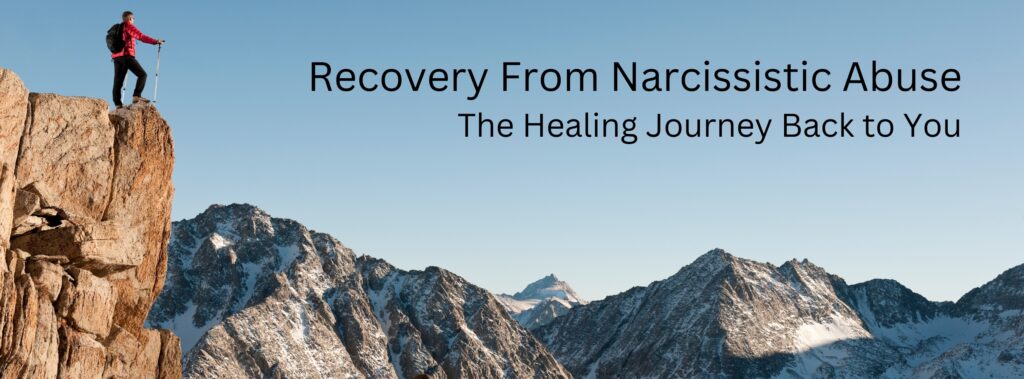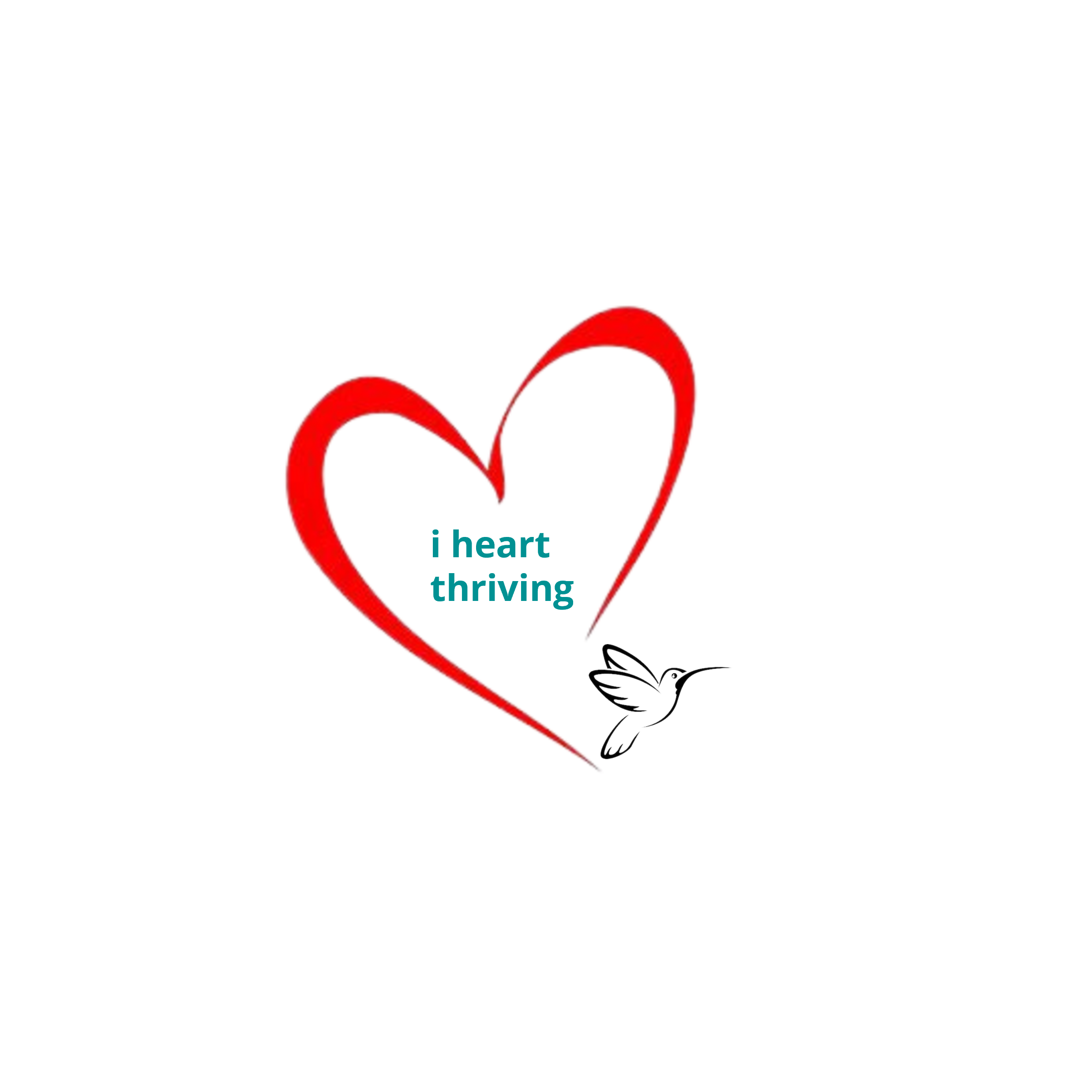
Healing From TOXIC AND Narcissistic Abuse
YOUR HEALING JOURNEY BEGINS NOW
You Deserve to Feel Safe and Loved Again
Reclaim Your Life, Your Peace, Your Joy
Narcissistic abuse can leave you feeling lost, broken, confused, and trapped in a cycle of doubt and pain. It’s not your fault, and you don’t have to face the healing journey alone.
Deep down, you know you deserve better – a life filled with confidence, peace, and self-love. You’re not alone, and healing is within your reach. You deserve healing, and we’re here to guide you with care, understanding, and a community that truly gets what you’ve been through.
Our Recovery From Narcissistic Abuse Program is a safe, supportive space designed to help you heal, rebuild, and thrive after narcissistic abuse. You are worthy of a life free from fear, and we’re here to help you get there.
What is Narcissistic Abuse?
Narcissistic abuse comes from someone with narcissistic personality disorder (NPD) or narcissistic traits. They often show an inflated sense of importance, seek excessive attention, have troubled relationships, and lack empathy, using control, manipulation, and emotional harm to dominate. But it isn’t just about manipulation and control. It’s a deeply personal violation that strips away your sense of self, making you question your worth, your reality, and your future.
Narcissistic abuse can be emotional, psychological, physical, sexual, or financial. This toxic environment slowly erodes your sense of self, you may feel confused, disoriented, or as if you’ve lost yourself and you feel powerless – but healing is possible, and we’re here to help.
Our program is here to remind you of your strength, guide you through the healing process, and help you rediscover the incredible person you are underneath the pain.
Do You Recognize Any of These Patterns?
- Gaslighting: They make you question your reality, twisting your thoughts and memories.
- Manipulation: You feel controlled, taken advantage of, or financially trapped.
- Verbal Abuse: Their words tear you down with constant criticism and belittling.
- Emotional Blackmail: They use guilt, fear, or obligation to manipulate you.
- Isolation: They’ve cut you off from loved ones and support.
- Blame-Shifting: Somehow, they make you feel like it’s your fault.
- Silent Treatment: Withdrawing affection or communication to control you.
- Love Bombing & Devaluation: They switch between love and harsh criticism, keeping you on edge.
- Verbal Abuse: Insults, belittling, and constant criticism.
If this sounds familiar, know that you are not alone.
Narcissistic abuse abuse is insidious and damaging, and can be overwhelming, but you can break free and reclaim your life. Healing is not only possible—it’s your right.
How Does Narcissistic Abuse Affect You?
Narcissistic abuse isn’t just painful in the moment – it leaves lasting effects on your mental, emotional, and even physical health. It can happen in your workplace, your family, or even your primary life partner. Whatever the relationship with the narcissist, You may recognize some of these signs:
- Confusion & Self-Doubt: Gaslighting and manipulation can make you doubt your own thoughts, feelings, and memories.
- Low Self-Esteem: Constant criticism and belittling leave you questioning your worth and abilities.
- Anxiety & Hypervigilance: You’re always on edge, afraid of the next argument, outburst, or emotional attack.
- Depression: Feelings of hopelessness, sadness, and loss of interest in things you once loved can be overwhelming.
- Shame & Guilt: Emotional blackmail makes you feel guilty for things that are not your fault.
- Identity Confusion: You may feel lost, unsure of who you are outside the abuse, as your sense of self has been eroded.
- Trust Issues: You struggle to trust others—or even yourself—after so much betrayal and manipulation.
- Chronic Stress: The constant emotional turmoil leads to physical symptoms like headaches, fatigue, muscle tension, digestive issues, and a weakened immune system.
- Cognitive Impairment: Mental fog, difficulty concentrating, and memory issues can result from prolonged emotional stress.
- Emotional Numbness: To cope, you might suppress your feelings, leading to emotional numbness and a sense of disconnection from your own emotions.
- People-Pleasing: You might find yourself putting everyone else’s needs above your own to avoid conflict or criticism.
- Social Withdrawal: Feeling isolated from others, you may avoid social situations out of fear, shame, or distrust.
- Hopelessness: The sense that things will never change or that you’re incapable of reclaiming control over your life.
- Conflicted Emotions: Torn between love and hate, especially if the abuser alternates between loving behavior (love bombing) and abuse.
- Helplessness and Powerlessness: Feeling trapped and powerless to change the situation
- Hyper-Sensitivity: Heightened sensitivity to criticism and rejection.
- Compulsive Behaviors: Turning to harmful coping mechanisms, such as substance abuse or self-harm.
- Existential Crisis: Questioning the meaning and purpose of life, struggling with a sense of worthlessness and despair.
These Effects Are Real… But They Don’t Have To Define Your Future
You Deserve Better. You Deserve Healing.
The effects of narcissistic abuse can have a massive impact on our sense of self-worth and profoundly impact our mental and physical health, making it essential to seek support and help to heal and recover.
Sadly, most of us will come across some sort of Narcissistic or Toxic Abuse in our lifetime.
How it affects us will depend highly on the relationship we have with the abuser, for example a partner, work associate, work supervisor, friend, or if they are merely an acquaintance. How their behavior effects us also is dependent on other factors including our own mental resilience.
This does not imply that any of the abuse is our own fault, it may just be that we have never been in situations where we needed to be armed to prevent the abuse, or that childhood experiences have made us blind to spotting it. Again, it is not our fault, and the good news is we can build our mental fitness so we can become more resilient to the toxic behaviors, so that they do not affect us.
Healing with Compassion, Support, and Guidance
